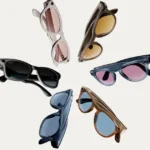In a world where choices speak volumes, where would you invest your $1,000: in cutting-edge tech or luxurious fashion? It seems like consumers have made their resounding choice.

While tech titans such as Microsoft Corp, Alphabet Inc, and Spotify Technology SA have reported impressive earnings growth this week, a striking trend has emerged, indicating a shift in consumer behavior, particularly affecting luxury brands, even household names like Gucci.
For years, the tech industry has been a driving force behind innovation, and the latest earnings reports reinforce their unwavering dominance. Microsoft’s first-quarter earnings report showcased a staggering 13 percent year-over-year revenue surge, reaching a remarkable $56.5 billion. Alphabet, Google’s parent company, followed closely with an 11 percent year-over-year spike, achieving a third-quarter revenue of $76.69 billion. Spotify, a standout in the audio streaming realm, also enjoyed growth, with a 3 percent increase in premium subscribers and a 4 percent uptick in monthly active users in the last quarter.
Contrastingly, the luxury fashion sector tells a different story. Gucci, part of the illustrious Kering SA umbrella, witnessed a 7 percent decrease in sales in the third quarter. Other renowned names like Yves Saint Laurent and Bottega Veneta experienced similar disappointing patterns. Even the diamond industry has lost some of its sparkle, partly attributed to a decrease in marriages and the specter of inflation.
Amy Hood, Executive Vice President and CFO of Microsoft, attributes the company’s roaring success to their sales teams’ consistent execution and collaborations with partners. Echoing this sentiment, Microsoft’s Chairman and CEO, Satya Nadella, underscores the crucial role played by artificial intelligence (AI) in their first-quarter triumphs. Similarly, Sundar Pichai, the driving force behind Alphabet, credits their upswing to innovations powered by AI.
In contrast, François-Henri Pinault, at the helm of Kering as Chairman and CEO, believes that macroeconomic challenges and a strategic repositioning aimed at refining brand distribution have impacted luxury sales.
So, what does this clear divide between tech and luxury signify for the broader market? As tech giants continue to sharpen their innovative edge and expand their horizons, they are evidently reaping substantial financial rewards. This shift signifies a marked change in global consumer preferences, with tech taking the lead, while luxury fashion contends with external economic challenges.
The overarching financial landscape, marked by rising interest rates and persistent inflation, likely plays a role in this transformation.
For the individual consumer, this pivot towards tech solidifies an increasingly noticeable trend – a growing appetite for digital experiences and technological advancements. The reliance on technology and the value it offers in the digital realm signal that luxury fashion is currently taking a backseat.
ALSO READ: Apple’s Secret AI Strategy Revealed: A Game-Changer in the Making









